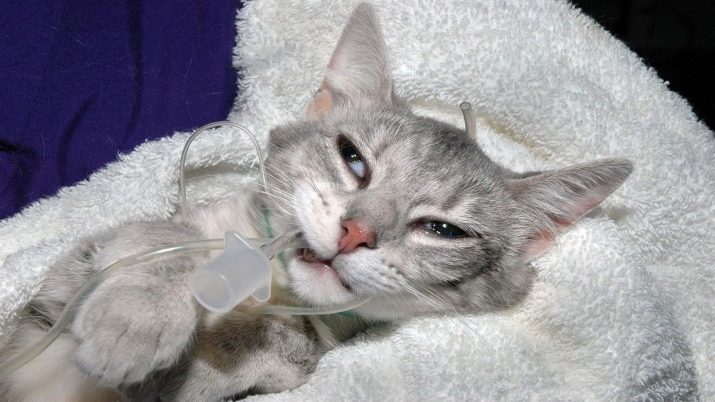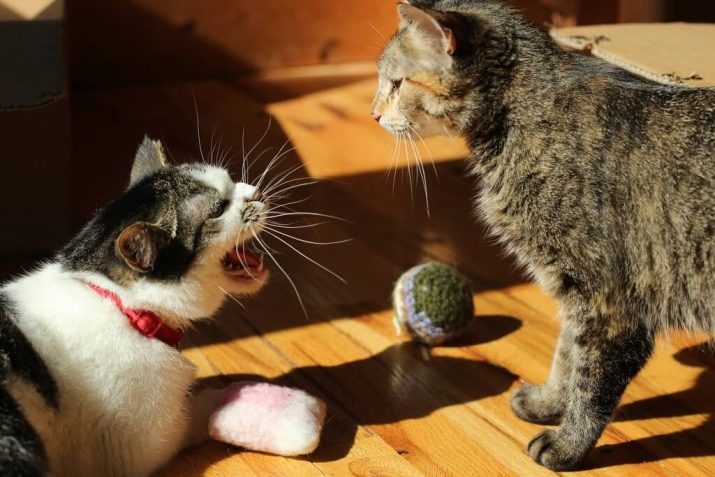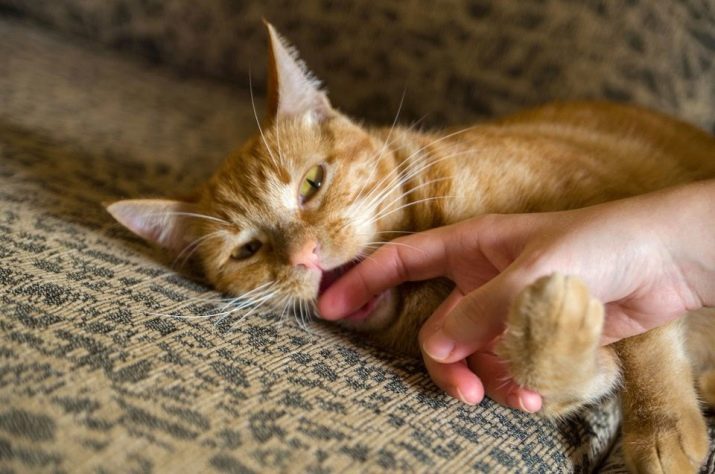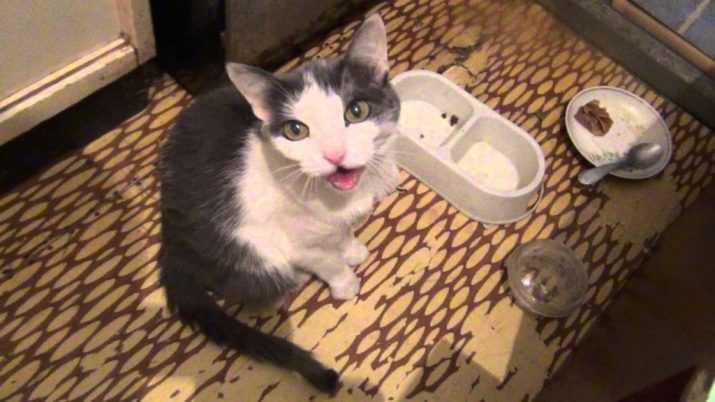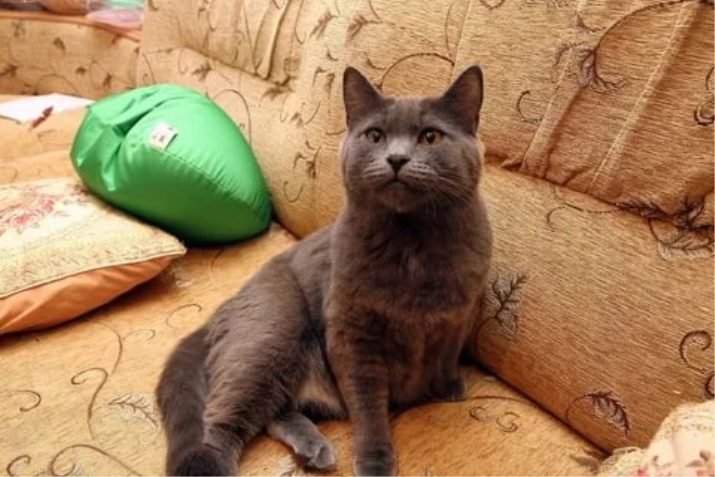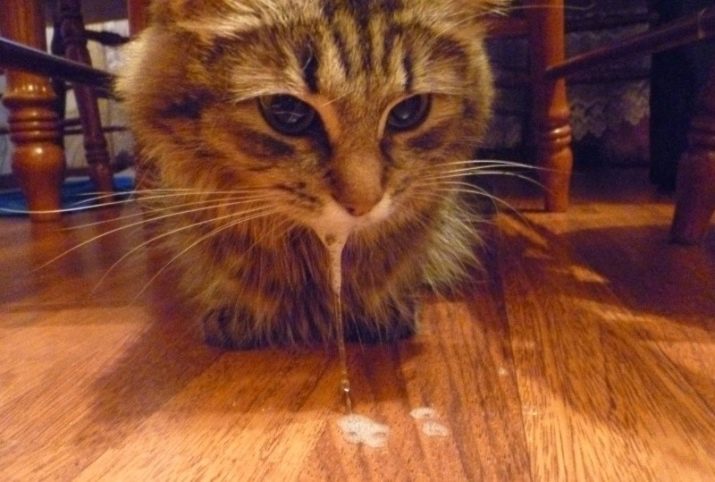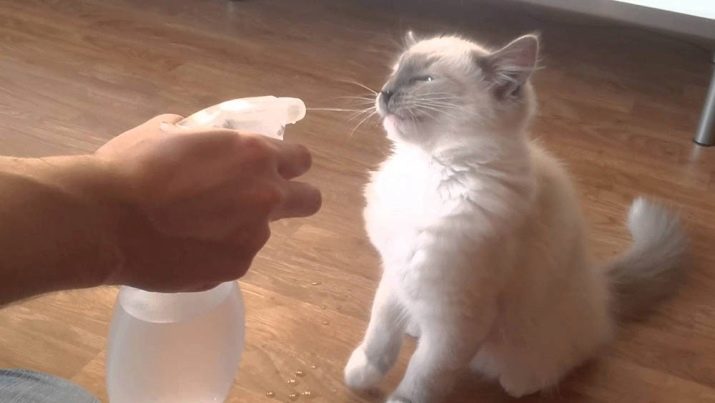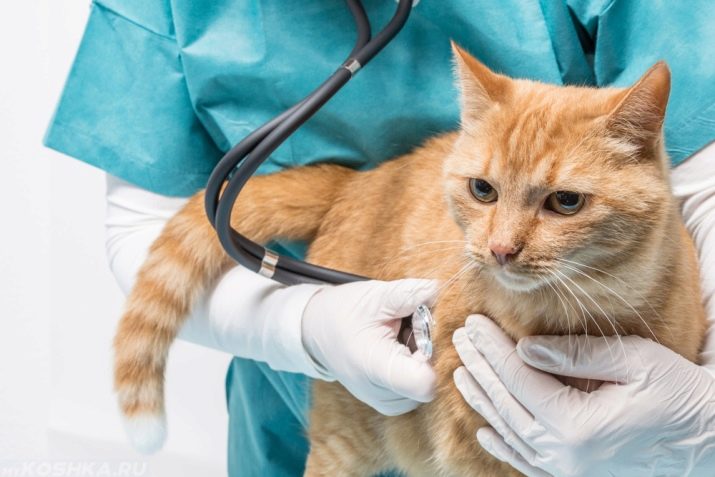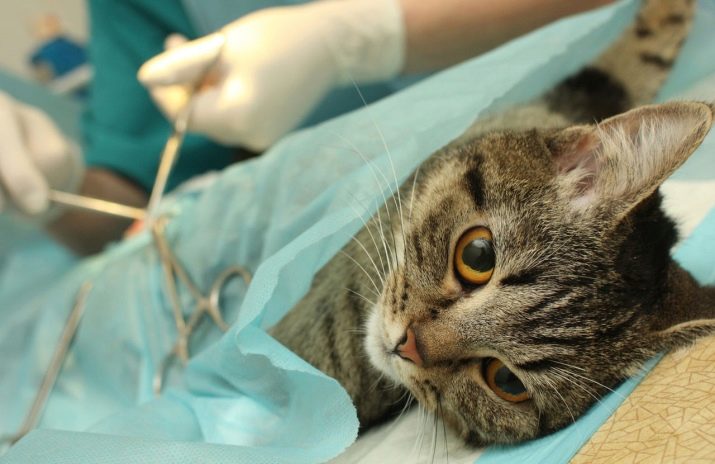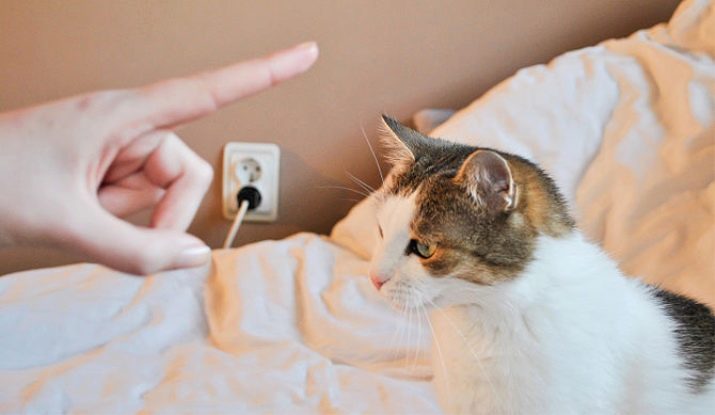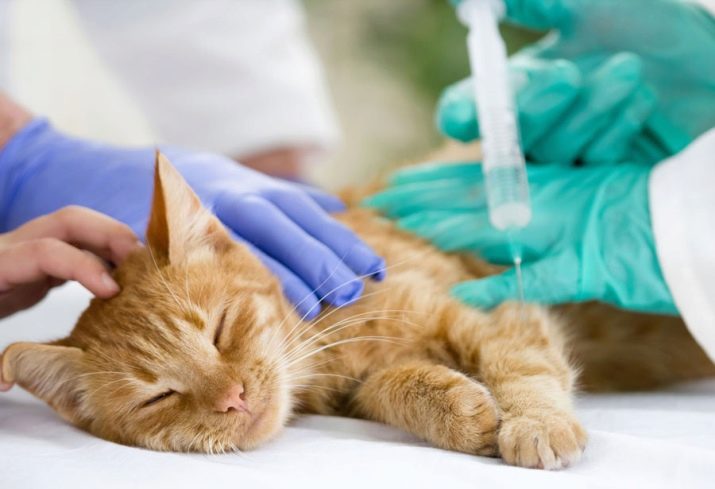Aggression in cats and cats: the main causes and ways to solve the problem

Most cat lovers make furry friends in the hope that they will give them only affection and love. What a surprise a favorite cat gives them when it suddenly becomes aggressive! Consider in the article why the cats change their behavior, what symptoms should be paid attention to, and what to do with the evil cat.
Symptoms and causes of aggression
Very aggressive behavior of a cat does not always speak about pathology. The fact is that all wild feline habits can not be eradicated. If the cat recently became a mother and now attacks the owners, just passing by her offspring, then this is not surprising. In this way, she displays maternal instinct and protects kittens from possible danger.
Cats can suddenly change their behavior to aggressive during hormonal jumps. They often show hostility towards people in the spring period, because at this time they have a cycle of readiness for reproduction. Even neutered cats can react in a similar way, since manifestation of domination and aggression embedded in the brain.
Interestingly, white cats are most prone to negative behavior (growling, scratching and biting). They are all distant relatives of the Angora breed, famous for its bad temper.
The main symptoms of aggression are:
- nerve waving tail;
- the cat hides in a corner or is pressed to the ground;
- ears are pressed to the head;
- dilated pupils;
- hiss;
- when the cat literally rushes at the owners because of every angle.
The reasons for the immoral behavior of a pet are very diverse and require detailed consideration. We list the main ones.
- Pain sensations. If the cat is in pain due to illness, injury, surgery, then surely she will not let anyone close to him. Unfortunately, it is impossible for an animal to explain its good intentions, and sometimes you have to endure attacks in order to at least feed your pet.
- Hormonal problems. The kitten can throw at a person during puberty, and an adult cat and a cat - in the spring. The period of estrus in cats causes violent excitement in males, and they all behave extremely aggressively. Someone more, and some less. The older the animal, the less it is affected by such phenomena, but there are exceptions. If in an old age something is observed in a cat or a cat, then it is better to leave the animal alone and do nothing.
- Fight for territory. The representatives of the cat family have a certain system of interaction with their fellows: they choose a leader in battles and constantly strive to overthrow him with the help of another fight. Friendship between two same-sex cats is a rarity. Therefore, there is nothing surprising in the fact that you decided to settle a second cat in your house, and the first one began to show aggression towards him, including you, including, so to speak, in retaliation.
- Stress. If an animal has survived a move to a new place of residence or repair, another animal appeared in the house (dog, bird, rabbit), or your child was born, then the cat's aggression should not be a surprise for you. Cats are domestic animals and are very worried when their habitual way of life is suddenly disturbed.
- Lack of education. From childhood, the kitten must be taught the rules of the game with the owner: do not allow him to scratch and bite, use special toys, punish him if he does not fulfill the requirements. Otherwise, the cat will think that the owner in the house is he, and will begin to behave accordingly.
- The animal is starving or thirsty.. Perhaps you accidentally missed the feeding time, or the cat ran out or spilled water from the drinker. In these cases, a disgruntled beast does not know how else to tell the owner about its needs, except to bite or scratch it.
- Pet food is defective. If the cat's diet lacks various vitamins and microelements, then anger and nerve reactions are quite possible. The animal's body should receive good nutrition so that all its systems, including the nervous one, work properly.
- Mental disorder. Unfortunately, mental problems have not bypassed cats. Some animals can not behave differently, simply because they are mentally ill. Like it or not, only a doctor can determine.
To begin to deal with the aggressive behavior of the cat, you must first find the cause of anger. And already on the basis of it to plan further tactics of action.
What to do?
If you ignore the aggression and wait until it passes itself magically, you can only aggravate the situation. The cat is experiencing severe stress at this time, which directly affects her health. Fluffy pets begin to sleep poorly, eat, there are problems with the immune system. As a result, the cat can finally go crazy, and its only reaction to all stimuli will be uncontrolled aggression.
That is why no need to postpone solving this problem. It is necessary to take active steps to save yourself and your beloved animal. It is very simple to pacify a playing cat: spray it with water. This measure helps to distract the animal and give him an opportunity to understand that he is behaving incorrectly. With an adult cat or a cat the situation is more complicated.
Let us analyze the main measures to prevent aggression in furry friends.
- Visit the vet. It is better to immediately eliminate the diseases and injuries of the animal than to miss the moment and regret it. You may not notice the outward signs of your cat's illness. And the veterinarian will suspect that something is wrong, help to stop the pain from which aggression occurs, and prescribe the correct treatment.
- Castration or sterilization. If the deviant behavior of the animal is related solely to the season of the year and the reproduction period of the feline, and the cat or cat is at home, then the best solution here will be castration or sterilization. Do not be afraid of this procedure. If you spend it with an experienced specialist, the animal will quickly recover and heal a completely quiet life without any extra hormonal problems.
- Privacy. With another cat or cat, other pets, your furry beast, if it makes friends, is difficult. To reduce his level of aggression and give time to get used to new neighbors, it is better to allocate a separate territory for him: a room or a corner. It is desirable that other pets this place was not available. So your cat or cat will feel safe and gradually calm down.
- Upbringing You need to start raising kittens from a very early age. It is much more difficult to retrain adults. But even the most neglected cases can be corrected. To do this, you need to find an approach to your pet, do not allow him to scratch and bite, but not to beat him at the same time. The way with water or locking the cat in another room most often helps. Do not allow children to mock animals, as both a cat and a child may suffer from this.
- Selection of good nutrition. In order for the animal to be playful and complacent, it needs to be fed to feed, and correctly. It is not worth buying a mass-market feed if you haven’t found any other reasons for aggression, besides improper feedingStop your choice on premium foods, which contain the necessary combination of proteins, fats and carbohydrates, as well as vitamin supplements. Include in the cat's diet some vegetables (carrots, zucchini), grow grass for it, for example, oats. Fiber is also important for furry pets as a source of trace elements.
- Euthanasia. Unfortunately, sometimes you have to resort to this at least. If the animal is mentally ill, and no means of aggression help, it is better to put it to sleep. Otherwise, you or your family members will be injured further, and the nervous situation in the family will become extremely tense.
As you can see, any problem with the aggressive behavior of a domestic cat can be solved if you approach this issue wisely. Do not tighten, watch your pet, look for the cause of anger and eliminate it at least partially. We are responsible for those who have tamed.
Useful recommendations
It usually takes a rather long time to solve the problem of aggression in cats and cats. Overnight it is impossible to change the behavior, and from a hellish monster turn a fuzzy into a tender purr. But if the cat attacks right now, you can avoid negative consequences for yourself. Pay attention to the useful recommendations of experts.
- Keep a large blanket or blanket handy. If the cat is preparing to jump and right now pounce on you, then it is better to neutralize the threat in a safe way for both of you: throw a blanket on the animal, grab it and carry it to another room, closing the cat there for a while.
- Buy a water gun. From a jet of water, the animal will be confused and will cease to show aggression. Most likely, the cat will simply run away. Therefore, the water gun is a great assistant in neutralizing the attack of rage in cats and cats.
- Keep calm. If an aggressive animal is not yet able to calm down, then it should not at least annoy and provoke. Behave in the presence of a cat quietly, do not make sudden movements. Talk affectionately to your pet - he must feel love and security.
Now you have to be patient and wise to save the situation. Do not lose heart and you will definitely cope with the aggression of your cat.
On aggression in cats, see below.




